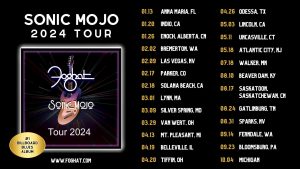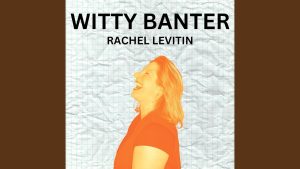
by Keith Valcourt
Very few musicians have a CV as long and impressive as keyboardist Geoff Downes. He started his career playing on commercial jingles in England. It was there he met a like-minded musical journeyman named Trevor Horn. The pair went on to form The Buggles, the 80s pop duo behind the first song ever played on MTV, “Video Killed The Radio Star.”
After just one album, Downes and Horn went to join 70s prog rock pioneers YES and helped launch that group into a new direction and decade by creating the album “Drama.” After that, The Buggles returned to the studio only to have Downes depart halfway through the making of their second record to join fellow rock icons Carl Palmer (ELP), Steve Howe (YES), and John Wetton (King Crimson) in supergroup ASIA. The quartet’s debut album was an instant hit thanks to MTVs heavy rotation of the songs “Heat of The Moment” and “Only Time Will Tell.” The band burned brightly and quickly, closing the first chapter of ASIA in 1986.
Fate brought the original members back together in 2000. Although the band failed to capture the same commercial success the second time around, they released a handful of amazing albums, all of which are now gathered into the just released ASIA CD box set: “The Reunion Albums 2007-2012.” Downes rejoined YES in 2011 and remains part of the band today. Geoff also continues with ASIA but without John Wetton (who died in 2017), and Steve Howe (he is now active full-time in YES.) I caught up with Geoff Downes from his rain-soaked home in Wales to discuss his musical journey and his gear for this exclusive Alchemical Records interview.

Q: Where are you Zooming from?
A: I’m in Wales. It has been solid rain here for the last week. I don’t mind the rain. It’s kind of nice.
Q: How did you meet Trevor Horn and form The Buggles?
A: After music college, I was in London. I saw an ad in the paper “Melody Maker” looking for a keyboardist. When I showed up, Trevor Horn was the guy hiring all the players to back a disco artist named Tina Charles. Trevor gave me the job because he said I was the only person who turned up with a synthesizer. The gig was good, and the band was solid. Trevor on bass.
Q: How was Trevor as a bass player?
A: Trevor is a good bass player. That was his main instrument.
Q: You got the gig based on your gear?
A: I had the right equipment, so I got the gig. I don’t know what my playing was like. We started touring with Tina Charles.
Q: Speaking of gear, I see a lot behind you. How many keyboards do you currently own?
A: I’ve got three identical rigs around the world. And there are 12 keyboards in each of those rigs, which totals 36 keyboards. I’ve got a studio full of stuff as well. Old Hammond organs and things like that. I don’t have a lot of stuff like I had back in the ASIA days, but I can replicate that.
Q: Do you have a favorite?
A: If I had to settle on only one keyboard, I would go for an acoustic piano every day. In more recent times, the keyboard that I really favor is a Studiologic Sledge. There are two versions. I have an orange one and a reverse black and white key one. They are very intuitive when it comes to getting those old analog sounds to come out.
Q: Do you prefer analog equipment to more computer driven digital?
A: I like to combine the two things. I was the first guy to take a Fairlight CMI on the road. That was the original keyboard sampler. Not just pure analog. I like to build up a wall of stuff that is both digital and analog. Hammonds. Moogs. Experimental stuff.
Q: Back to The Buggles – did you know in advance that the first video MTV was going to play would be “Video Killed The Radio Star”?
A: No, we heard after the fact. Someone said, “Oh this new station started up in America called MTV.” They told us we had been the first song they played. It was cable, and we were told it was only available in certain areas like New York City and L.A. The impact wasn’t felt by us initially. Of course, a few months later it exploded. But when they first played it, one didn’t know what a massive impact MTV would have on the song and on the music business. Then MTV took over, and every label wanted their bands on MTV. It was such a new thing and exciting times.
Q: After the first Buggles album, you and Trevor joined YES. Do you have any favorite memories of making the YES “Drama” album?
A: It was great to be working with these fantastic musicians in the studio. Their attention to detail and experience was amazing. It was in many ways a great learning curve. And Trevor and I were carried along. That inspired some of the best of my work. When you are in that pressure cooker situation, you either stand or fall. We had a good time making it, but it was full of drama. That is where the album got its title. Producer Eddie Offord came and went. We were left trying to produce it ourselves at the end.
Q: Were the YES fans welcoming?
There was a certain animosity to us even before people heard a note of music. That was something we had to overcome. As time has gone by, even diehard YES fans have converted round said “Drama” is one of their favorite YES albums.
Q: That album changed the perception of YES.
A: I think we came up with a great album. But more importantly, we helped move YES into another decade. Another era. We helped them transition from being a 70s group to an 80s band, which they exceled at after “Drama.”

Q: How did Trevor Horn react when you left The Buggles to form ASIA?
A: I said to Trevor, “I have this opportunity to form this band with these incredible guys. That’s what I’m going to have to do.” He knew that was where my heart was leading me.
Q: When you started recording with ASIA, did you know it would be a success from the beginning?
A: You can never predict how it’s going to go. If you had a crystal ball maybe. You could put the greatest player in a band with the greatest players, and something might not happen. In our case, we had a vision that worked. I knew writing with John was going to lead to something good. We always had a very special writing relationship. So many things came together to make it happen. MTV played a large part as well.
Q: The original ASIA split at one point, and you continued in a version of the band with John Payne.
A: I had worked with John Payne on a few projects prior to asking him to be part of ASIA. I thought working with him would be a good way to carry on. We did some great albums. The difficulty was in booking tours. We only had one original member, and it was very hard to sell that to people, including fans and promoters. They would say, “When I really liked ASIA, you had my favorite guitarist or my favorite vocalist and my favorite drummer in the band.” In that respect, it was hard in some areas to keep the interest factor going.
Q: What brought the original lineup together again?
A: We didn’t really finish the job off. In early 2006, we decided that we should give the reunion idea a whirl.
Q: Sadly, John Wetton died in 2017. Do you think he would want ASIA to continue?
A: I sure he would. I’m sure he wouldn’t have wanted the music locked in a box and forgotten. It’s a great legacy of music, and the new box set really reflects the second era of the original band. Although it may not have been as commercially successful, it shows what the band was capable of.
Q: Did you feel slighted not to be included when the Rock & Roll Hall of Fame inducted YES?
A: By the time they got in, I had only done two albums with them, so I wasn’t really that fussed about not being included. They got the fundamental people like Rick (Wakeman), Jon Anderson, Tony Kaye, Chris Squire, and Trevor Rabin in.
Q: What is the future of ASIA?
A: We were invited on a tour in 2019 that celebrated the tendrils of YES and ASIA. We toured together. We had Ron “Bumblefoot” Thai come in and do the vocals for ASIA. Plus he played guitar. He was fantastic. Billy (Sherwood) went on bass. It was a fantastic presentation of ASIA’s music. That tour reminded me how powerful the music of ASIA can be. I hope we will continue that. I spoke to Carl about it, and he thinks we should go forward and do the music.
Q: Will Steve Howe make guest appearances?
A: Steve was guesting on the last tour. It was great to have him back. We are all getting on a bit in years. Steve and Carl are in their 70s, and I’m not far off. The music is there. If people want to hear it, we will be quite happy to take it out there again.
Q: Away from ASIA and YES, what are you working on musically these days?
A: I’m working with a songwriter called Chris Braide. We are called DBA or Downes Braide Association. We just put a new album out, and it was well received. That’s a nice little side thing that I do. I’ve been doing various sessions with people. In the pandemic, I’ve kept quite busy in a funny kind of way. Technology today allows you to connect in different ways. We no longer must be in the same room to make music.
Follow our Alchemical Weekly Spotify Playlist for this and more great music featured on the site.

Keith Valcourt is a Los Angeles based music and entertainment writer. He has interviewed thousands of celebrities in the worlds of music, film, TV and comedy for dozens of outlets including: L.A. Times, Washington Times, LFP Publishing, ChelseaCommunityNews.com, RetroRoadMap.com LaArtsOnline and more. Much More

Recent Articles March 21st. A day that I will always think of amazing album releases. DC-based musician, producer, and singer-songwriter, Rachel Levitin, released Witty Banter

Alchemical Records is a Washington, D.C. based music publication. We cover the Washington, D.C., Baltimore and Richmond, VA metro area music scenes, including band interviews, articles about your favorite musicians, new music and concert dates.